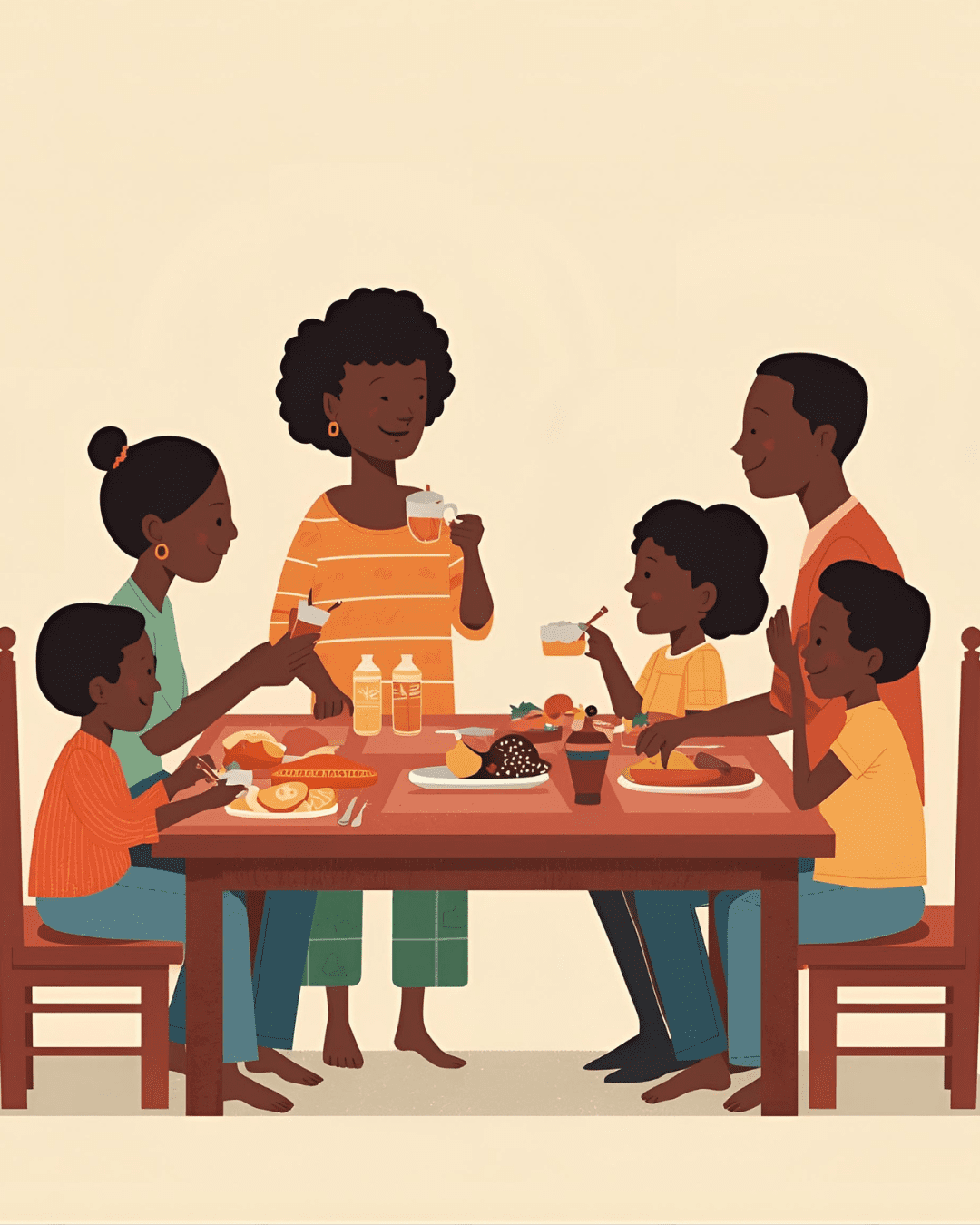I still remember the day my sister and I burnt dinner. We were supposed to be cooking, but a game stole our attention, and by the time we noticed, smoke had filled the kitchen.
What are we going to do my sister asked. We had been warned countless times about getting distracted while doing any chore. As we stood there in silence, hearts pounding, we knew we were in trouble. We had ruined everyone’s dinner!
When our parents came home, we decided to tell the truth. We knew that whatever consequence came, we deserved it.
There was disappointment, yes, but there was also understanding. That evening, as we ate a simple meal of fried plantain with stew instead of what we had planned, I realized something: family is the first place we learn love and empathy.
It’s where we learn that mistakes don’t define us, honesty matters more than perfection, and love sometimes looks like forgiveness over food that didn’t turn out right.
The First School of the Heart
Before we ever step into a classroom, we are already learning, not through textbooks, but through touch, tone, and time.
Family is where we first discover what love feels like: the warmth of a hug, the sting of correction, the comfort of being understood.
It’s where empathy takes root, when a parent stays up through the night with a sick child, or when siblings share the last piece of bread without being asked.
Research from UC Berkeley’s Greater Good Science Center even suggests that empathy begins forming in early family interactions, shaping how we connect with others later in life.
In those little, ordinary moments, we begin to understand care not as an idea but as an action.
Love That Evolves as We Grow
The love we learn in childhood doesn’t stay the same; it evolves.
When we’re young, we depend on our family to take care of us. As we grow older, we start to understand the sacrifices behind that care.
We begin to see the small details: how our parents kept going even when they were tired, how they gave when there wasn’t much to give.
And one day, we catch ourselves doing the same for others, cooking for someone we love, checking in, and forgiving quickly.
That’s the full circle of empathy, the lessons that started in childhood quietly shape the way we love in adulthood.
When Family Isn’t Perfect
I understand that not every family story feels warm. Some of us grew up with silence instead of laughter, or with walls that divided instead of arms that embraced.
Yet even in those broken pieces, there’s wisdom.
We learn resilience. We learn compassion for others who’ve walked the same road.
And sometimes, we become the love we never received — building families of friendship, faith, or choice that remind us healing is still possible.
Family doesn’t have to be perfect to teach us love — it just has to be real.
As the Mayo Clinic notes, forgiveness is not just about letting go of anger — it’s an act of healing that strengthens relationships and restores emotional balance.
Passing It Forward
Every day, we have a chance to extend the lessons we learned at home.
A kind word, a patient response, a moment of forgiveness — these are small echoes of family love living on in us.
When we help a stranger, comfort a friend, or choose to listen before judging, we’re continuing what our parents, siblings, and caregivers began.
Love that starts in the home doesn’t stay there — it multiplies, reaching far beyond walls and bloodlines.
Final Reflection
Family is the first place where love speaks and empathy listens. It’s where we learn to say, “I’m sorry,” and mean it.
It’s where we’re reminded that love isn’t just what we feel — it’s what we choose to do, again and again.
So today, take a moment to appreciate the people who taught you how to love — not perfectly, but sincerely.
Because long after the burnt dinners and childhood mistakes, those early lessons in patience and forgiveness become the way we bring light into the world.

